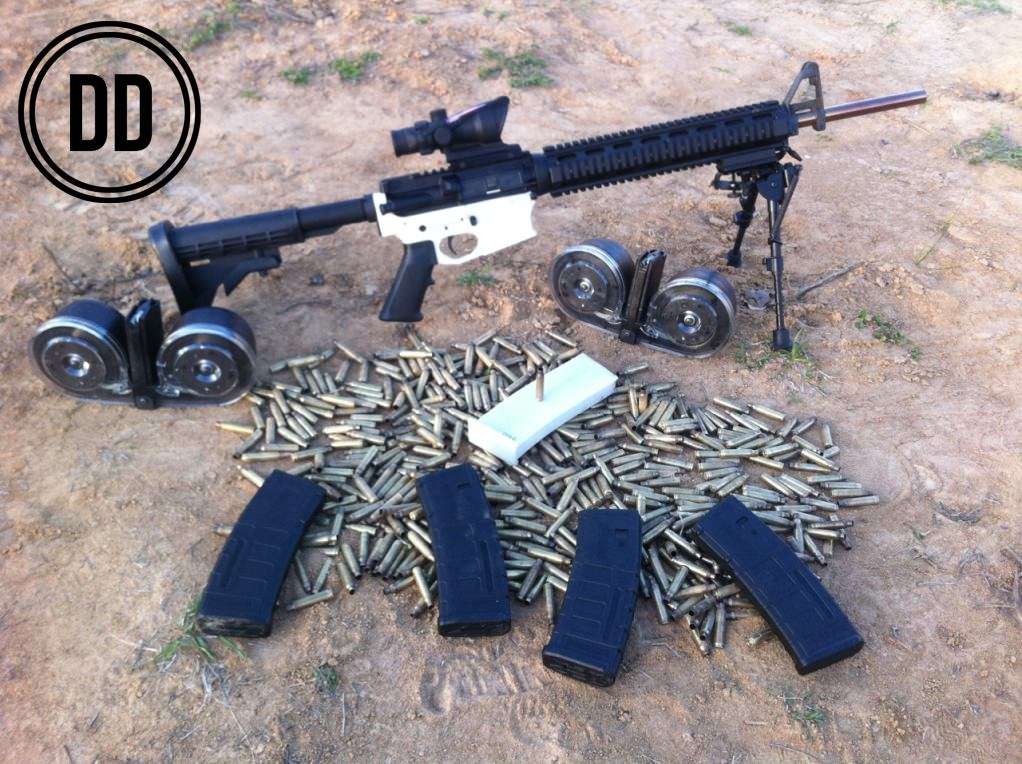Gun Control Laws Increasingly Irrelevant as 3D Printed Rifle Receiver Fires Hundreds of Rounds

On Monday, with little fanfare and less comment — primarily because none was needed — Defense Distributed unveiled a 3D-printed lower receiver for an AR-15 that stood up to hundreds of rounds of fire. Succinctly, the video on Youtube was accompanied by the statement, "Does not fail from firing stresses. 600+ rounds." Just as important, and the purpose of all this effort, the group made plans for the receiver available for download by all and sundry at DefCad. Defense Distributed's video and 3D printer plans are a clever and powerful blow to politicians' efforts to restrict Americans' abilities to own the means of self-defense. They may also be a glimpse of a future in which human liberty is largely dependent on an ability to limit the reach of the state through technological innovation and grassroots defiance.
It wasn't long ago that Defense Distributed was getting some ribbing for the quality of its subversive efforts when its first attempt at a receiver fell apart after six shots. Then, the group unveiled a high-capacity rifle magazine that could be manufactured in a home workshop on a 3D printer. They named it "Cuomo" after New York's control-freaky governor. Not so much ribbing.
Now, within months of the initial experiments we have a rifle lower receiver — the legal "gun" part of an AR-15, so far as the government is concerned — that can handle hundreds of rounds and keep going. As Defense Distributed responded to New York Democratic Rep. Steve Israel's announced intention to develop some sort of magical legal blockade to the home manufacture of firearms and magazines, "Good luck."
I'm not a believer that we're tumbling into some sort of dystopian future of totalitarian control. Well, not in the short term, anyway. I'm ecstatic that we've moved in a few, short years from "just say no" to fully legal marijuana in two states and national poll numbers that would support the same policy across the country.
Likewise, expanding recognition of same-sex marriage has given gays and lesbians access to the legal benefits that have been tied to that institution. It also makes them feel more like full citizens rather than a despised minority.
These are excellent developments for personal freedom.
But I can't help but notice that legal marijuana and gay marriage may challenge government officials' prejudices, but they pose no threat to the power of the state. Firearms ownership does. So does privacy. Yesterday's Supreme Court decision in Clapper v. Amnesty International made clear the legal contortions through which the state is willing to go to maintain and extend its ability to spy on us, snooping into our politics, our personal lives and our finances.
In the future privacy, like self-defense rights, will likely depend on our ability to ignore and subvert the state with technological protections including encrypted communications and alternative currencies. Communications services like Silent Circle (and its inevitable competitors) and anonymous or nearly anonymous currencies like Bitcoin may preserve the privacy that the state would like to deny us.
Defense Distributed is an inherently political effort, focusing as it does on the AR-15 rifle that is the focus of government officials' two-minutes hate. No clearer raised middle finger to government could there be in the current gun control debate. But we're going to need more such flipped birds in the years to come — more liberty-preserving innovations that say, "you pass the laws that you want, and we'll render them impotent before the ink is dry."


Show Comments (87)